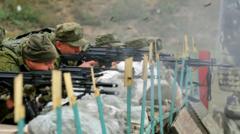Xi Jinping's upcoming visit to Moscow signifies a crucial moment in China's global strategy, risking European relations.
Xi Jinping's Moscow Visit: A Double-Edged Sword for China

Xi Jinping's Moscow Visit: A Double-Edged Sword for China
China faces challenges in balancing ties with Russia and Europe amid a turbulent global backdrop.
As the world grapples with shifting alliances and economic uncertainty, China finds itself in a delicate position. The highlight of this complexity will be Xi Jinping’s visit to Moscow, where he will be honored by President Vladimir V. Putin as the “main guest” at the landmark Victory Day parade commemorating the 80th anniversary of the Soviet victory over Nazi Germany.
This visit symbolizes a strengthened alliance between the two countries that view themselves as fortifications against what they perceive as Western hegemony. Xi aims to leverage this historical moment to cast a spotlight on past defeats of fascism, drawing parallels to contemporary global dynamics and labeling U.S. influence as a form of modern-day bullying. In a recent article shared with Russian media, he asserted the need to learn from history, advocating for the rejection of hegemonic powers to forge a better future for humanity.
However, Xi's presence at this parade in solidarity with Putin may inadvertently highlight China's support for Russia amid the ongoing war in Ukraine, which has claimed countless lives and altered the security landscape of Europe. This optics may create significant headwinds for China's attempts at mending fences with European nations, an endeavor that is critical as it seeks to mitigate the effects of a protracted trade war with the United States.
As discussions around trade between U.S. and Chinese officials are set to kick off in Switzerland very soon, the context of Xi's visit to Moscow looms large. China is in need of expanding its markets, particularly in Europe, as a crucial alternative to those it has lost to American tariffs. This complex web of international relations underscores the fine balance Xi must navigate in his pursuit of global influence amidst rising tensions and conflicting interests in the geopolitical arena.
This visit symbolizes a strengthened alliance between the two countries that view themselves as fortifications against what they perceive as Western hegemony. Xi aims to leverage this historical moment to cast a spotlight on past defeats of fascism, drawing parallels to contemporary global dynamics and labeling U.S. influence as a form of modern-day bullying. In a recent article shared with Russian media, he asserted the need to learn from history, advocating for the rejection of hegemonic powers to forge a better future for humanity.
However, Xi's presence at this parade in solidarity with Putin may inadvertently highlight China's support for Russia amid the ongoing war in Ukraine, which has claimed countless lives and altered the security landscape of Europe. This optics may create significant headwinds for China's attempts at mending fences with European nations, an endeavor that is critical as it seeks to mitigate the effects of a protracted trade war with the United States.
As discussions around trade between U.S. and Chinese officials are set to kick off in Switzerland very soon, the context of Xi's visit to Moscow looms large. China is in need of expanding its markets, particularly in Europe, as a crucial alternative to those it has lost to American tariffs. This complex web of international relations underscores the fine balance Xi must navigate in his pursuit of global influence amidst rising tensions and conflicting interests in the geopolitical arena.


















